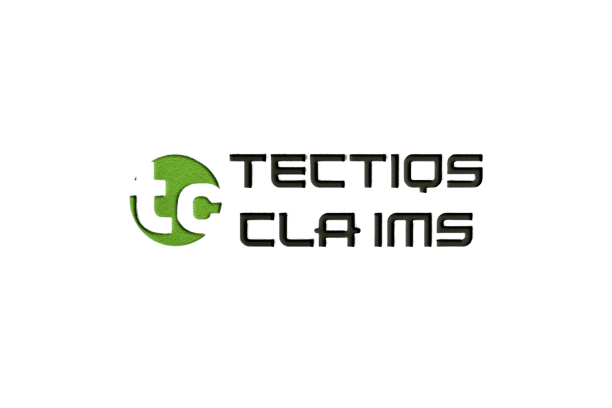Is State Vehicle Inspection Fee Tax Deductible in UK?
For people managing personal finances and seeking to comply with tax laws one of the most helpful things is knowing just what is deductible: which expenses can be claimed on the return or deducted from income. One common question for vehicle owners in the UK is whether state vehicle inspection fees, or MOT (Ministry of Transport) test fees as they are often called, are tax deductible.
This comprehensive article is aimed at going into the intricate details of tax deductions related to vehicle inspection fees, offering extensive insights with references to tax laws and practical opinions for taxpayers.
UK Vehicle Inspection Overview
The UK requires vehicle inspections in order to guarantee safety and environmental standards. The MOT test is a yearly inspection needed for most motor vehicles three years or older. It checks various parts of the vehicle should be required, such as brakes, lights, and emission levels. The cost of an MOT test can vary but is governed to ensure that it is still reasonable for vehicle owners.
UK Tax Deductions
Before examining specifically how much you can claim for vehicle inspections, it is important to understand the general principles of tax deductions in the UK. Tax deductions reduce the amount of tax that an individual must pay. But, not all expenses are deductible. With its tax regulations, the British government’s HM Revenue and Customs (HMRC) stipulates rules explicating what can be deducted or not at Labor’s Webcasts.
Can MOT Fees Be Tax Deductable?
The first thing to ask is whether MOT fees count as a tax-deductible cost. Normally, personal costs- including those on private vehicles -are not tax-deductible. This is true of MOT fees for privately owned vehicles. Nevertheless there are exceptions, particularly where the use of a vehicle by any particular individual for commercial purposes constitutes an exception.
Personal use vehicles
For personal vehicles, the MOT fee is a personal expense. As an item of personal cost, the tax bureau does not permit deductions on this account. Amongs such personal costs, MOT fees for vehicles used privately therefore cannot be claimed as tax relief on personal income tax returns.
Business use vehicles
Meanwhile, expenses such as MOT fees can be deducted from one’s income tax while other fees and taxes associated with the car are borne by themselves as business costs-for legally practicing people only. To be able to write off maintenance expenses for a vehicle against this year’s business income requires it also be used to make taxable earnings.
Breakdown for business use of tax
A vehicle that is used in the course of business can have various expenses written against it for a reduction in taxable income 1. Determine Business Use The first step is to determine the extent to which the vehicle is used for business purposes. Expenses which are wholly and exclusively for business purposes can, as they ought not exceed the amount of income from that source, be deducted in full. In the case of a vehicle which is partly used for business but also has a personal use, costs must be divided between these two uses.
Accurate Records
Are Key Accurate record-keeping is essential for deducting any expenses from business income-including MOT fees. Business owners and self-employed people should keep detailed records of all vehicle-related expenses: receipts of MOT tests, fuel vouchers, bills for repairs or overhauls– This will be necessary should you ever find yourself in court accused of criminal activities (or sued). HMRC can ask to see these records and will expect you provide them within 30 days Notice.
Dividing the Expenses
In cases where a vehicle is used for both business and personal purposes, all costs are split according to the percentage of business use. If the car drives 60% for business reasons and 40% privately, then only 60% of any MOT bill can be claimed back.
Measuring Business Tax
Once the use of the car by the trade has been measured, the proportion that the MOT charge represents in relation to business becomes clear and it may be included in business accounts; this amount has to be paid out of income before any expenses are subtracted. It is then deducted from the business’s total profit and taxation linked to that.
Practical Examples
Sole Trader
John is a sole trader PLUMBER. He uses his car for 70% of his business, driving it on repair jobs to customers’ homes. Thus 70% is the proportion of his car which is involved in real work while remaining 30% goes for private use. His annual MOT fee is £50. He can claim 70% of the £35 for expenses; this then goes into business usage on his bracket return.
Company Car
Sarah is the proprietor of a small marketing agency. She uses a company vehicle entirely for business and can therefore write off the full cost of the MOT fee. If my MOT fee is £50, I can cancel £50 this year without any fear that it will be reprised in my return.
Liabilities of Laws, Regulations and Rules
So as to give access to an authority on this information, it is essential that we refer back to relevant legislation and guidelines put out by the HMRC and other regulatory bodies.
HMRC Guide on Business Expenses
The Guide refers to company expenses that are allowable within the law. HMRC’s Business Income Manual (BIM) states that only “wholly and exclusively” expenditure is allowable as tax deduction for business purposes. This includes vehicle MOT fees, so long as a car is being used in business. The whole cost of an MOT can be a legitimate expense unless it is known for certain that all usage was private and not connected with any trade.
Capital Allowances
In some cases, for motor cars and commercial vehicles businesses may be able to claim capital allowances. This enables the cost of the vehicle to be spread over several years when it is deducted from taxable profit during each year exposed. Nevertheless, day- to- day amenities such as MOT fees are normally considered operating expenses rather than Capital Expenditure.
VAT Considerations
If the business is VAT-registered, it may also be possible to reclaim the VAT portion of vehicle expenses, including MOT fees. However, this is only applicable if the vehicle is used for business purposes, and accurate records must be maintained to support the VAT claim.
Practical Tips for Taxpayers
Consult a Tax Professional
Navigating tax deductions can be complex, especially when it involves apportioning expenses for mixed-use assets like vehicles. Consulting with a tax professional or accountant can provide personalized advice and ensure compliance with HMRC regulations.
Use Accounting Software
Utilizing accounting software can help streamline the process of tracking vehicle expenses and apportioning costs between personal and business use. Many software solutions offer features that simplify record-keeping and expense tracking.
Stay Informed
Tax laws and regulations can change, so it’s important to stay informed about any updates that may affect your ability to claim vehicle expenses. Regularly checking HMRC’s website and subscribing to tax newsletters can help keep you up-to-date.
Conclusion
In conclusion, whether state vehicle inspection fees, such as MOT fees, are tax-deductible in the UK depends on the vehicle’s use. For personal vehicles, these fees are generally not deductible. However, for vehicles used for business purposes, MOT fees can be claimed as part of the business expenses, provided accurate records are kept and the expenses are properly apportioned. Understanding and applying these principles can help taxpayers maximize their deductions and ensure compliance with HMRC regulations.
By following the guidelines and examples provided in this article, vehicle owners can make informed decisions about their tax deductions related to MOT fees, ultimately leading to more efficient and effective financial management. For more detailed advice tailored to specific circumstances, consulting a tax professional is always recommended.


